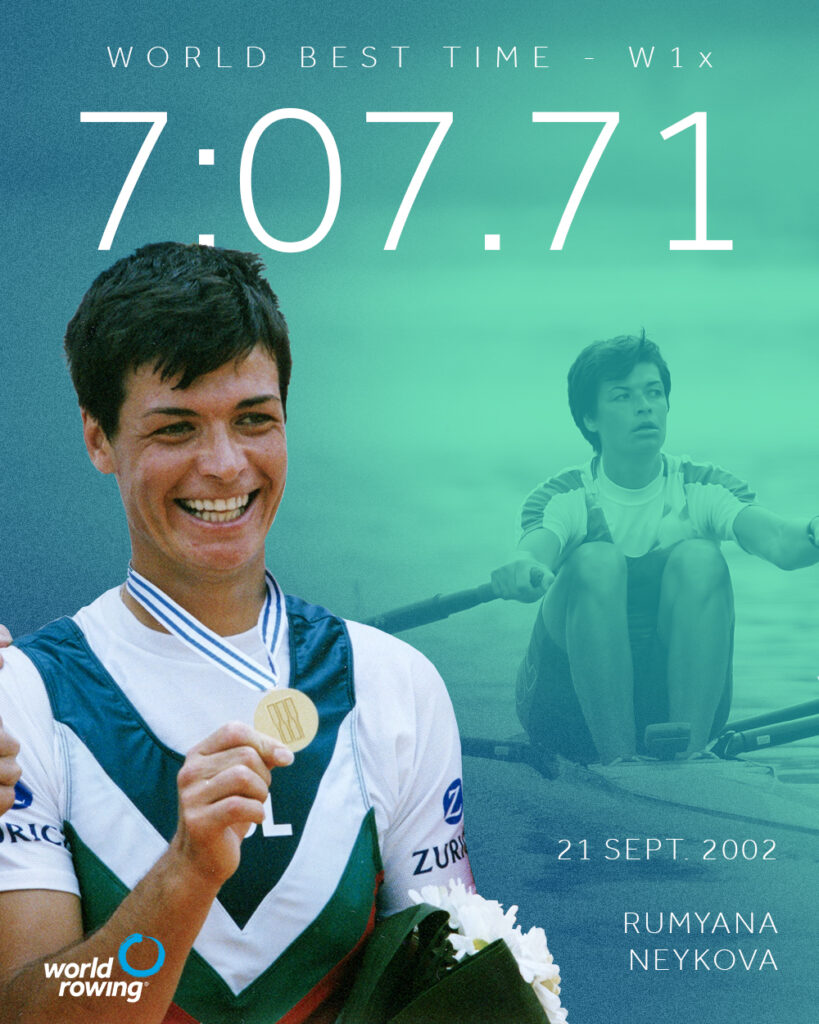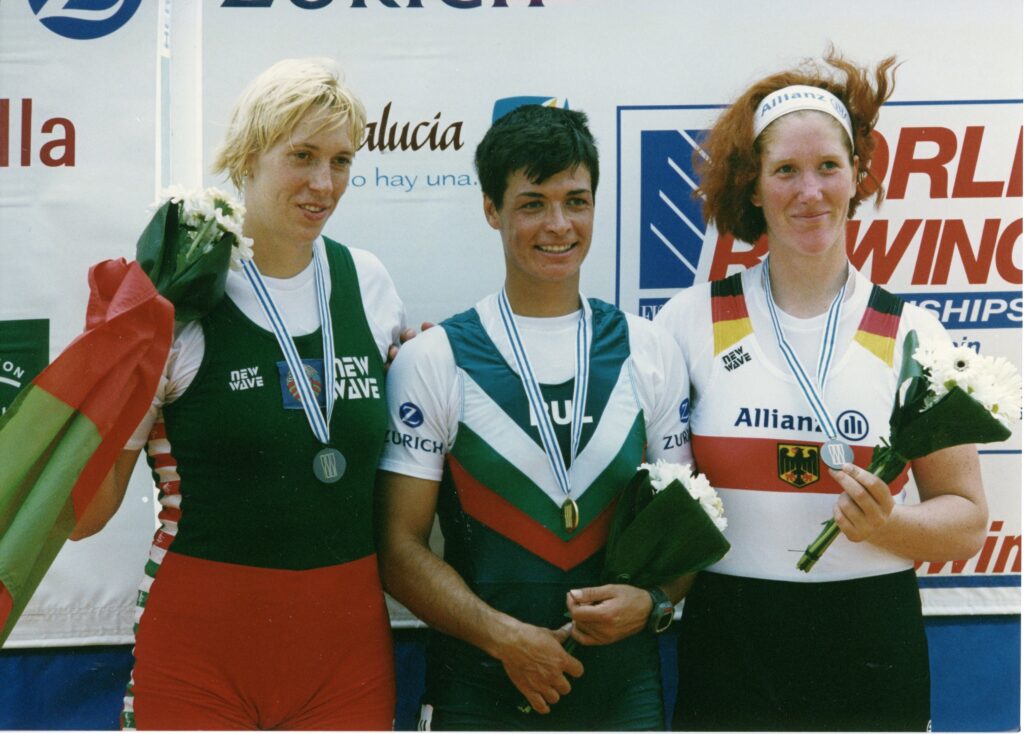
26 Mar 2024
Where are they now: Rumyana Neykova
It was the final of the women’s single sculls at the 2002 World Rowing Championships, 29-year-old Rumyana Neykova of Bulgaria lined up against the reigning world champion Katrin Rutschow of Germany and reigning Olympic Champion, Ekaterina Karsten of Belarus.
 At the other end of the 2000m course on Seville’s Guadalquivir regatta course in Spain, Neykova had not only won, she had set a new World Best Time. Her time of 7:07 shaved nearly four seconds off the previous time set by Karsten in 1999. Remarkably the time still stands today, 22 years later. It is the longest standing current World Best Time.
At the other end of the 2000m course on Seville’s Guadalquivir regatta course in Spain, Neykova had not only won, she had set a new World Best Time. Her time of 7:07 shaved nearly four seconds off the previous time set by Karsten in 1999. Remarkably the time still stands today, 22 years later. It is the longest standing current World Best Time.
What is this phenomenal rower doing 22 years after making history? World Rowing talked to Neykova about her life as a rower and life after rowing.
Sport was part of Neykova’s life from the beginning. As a child Neykova tried many sports including gymnastics, swimming, volleyball and athletics. “But,” she says, “in rowing I found myself.”
At the age of 12, the choice of the sport of rowing was made by her parents. “My mother wanted to be in an environment with girls of my height (175 cm). I wanted to be different. Ever since I was little, I dreamed of being a champion. I always wanted to be the first in everything. Training and competing was a pleasure for me.”
Neykova made the Bulgarian national team as a junior, competing first in the double but soon switched to the single. She raced at her first Olympic Games in 1992 in the quadruple sculls. Then returned to the single making the B-final at the 1996 Atlanta Olympics.
Leading up to the 2000 Olympics Neykova was regularly in the medals and it all came together in Sydney when she raced Karsten neck-and-neck over the finish line in the final. The finish was so close that umpires took over 20 minutes to pick the winner. Neykova won silver by a sliver.
Neykova took time off after Sydney for the birth of her son Emil, and then came back to become World Champion in 2002 and setting the World Best Time. Neykova calls the birth of Emil and then in 2006 Mario, “apart from sports, they were my victories in life”. Both sons now row internationally.
Going on to two more Olympics, Neykova finished third at Athens behind Rutschow and Karsten. Then, finally, in 2008 Neykova became the Olympic Champion ahead of Karsten and Michelle Guerette of the United States. The gold in Beijing Neykova calls the “pinnacle of my career”. Injured just a few days before the Olympics, her focus became solely on being able to launch.
“I went through the most terrible days (in the lead up to the Olympic regatta). I was looking at years of work, thousands of trainings and all my dreams would have gone if I hadn’t recovered. I knew that this was my last chance to be an Olympic Champion at the age of 35.”
 Looking back Neykova sees that she competed through one of the most interesting times for the women’s single.
Looking back Neykova sees that she competed through one of the most interesting times for the women’s single.
“There was Ekaterina Karsten, Katrin Rutschow, Miroslava Topinkova Knapkova (Czech Republic), Irina Fedotova (Russia), Maria Brandin (Sweden), Trine Hansen (Denmark) and Michelle Guerette. Now more and more contestants come ready to be champions, like Emma Twigg (New Zealand), Julia Michalska (Poland), Frida Svensson (Sweden).”
Retirement came soon after her Olympic gold in Beijing and Neykova says it was “easy and difficult”. Now with two children she says they were eagerly waiting for her. “As a mother I had my duties towards them. School, sports, education and unforgettable moments together.”
Neykova also got right back into the rowing world starting as Bulgaria’s Head Coach in 2009. “Sports are everywhere around me. I am with a sports club in the city of Sofia, I work for the Bulgarian Rowing Federation and I have a lot of public responsibility.”
But she no longer does sport herself. “I never show the rowing technique either on a trainer or in a boat.”
And her last words of advice. “The life of an athlete is boring. The same thing happens every day. The important thing is that every athlete has big dreams and knows that they come true, although after a lot of work, daily training, a lot of will and motivation. Success is easy, but we have to pay the price.”

